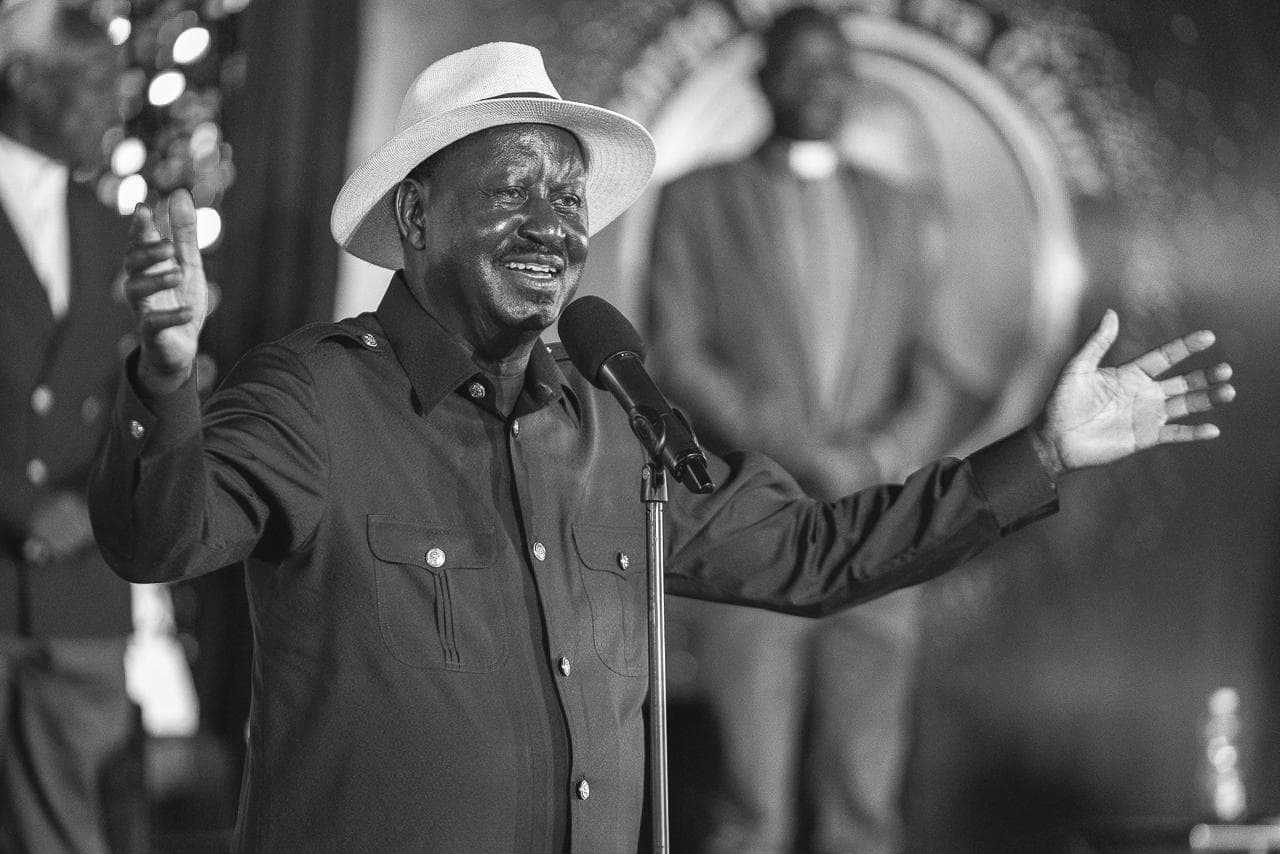We're loading the full news article for you. This includes the article content, images, author information, and related articles.
The passing of veteran politician Raila Odinga has left Kenyan musicians mourning, highlighting his historical support for the arts and raising concerns about the future of the industry.

The Kenyan music fraternity is grappling with the loss of Raila Odinga, who passed away on Wednesday, October 15, 2025, at the age of 80. Odinga, a towering figure in Kenyan politics, was not only celebrated for his democratic ideals but also for his notable engagement with the country's vibrant music scene. His death has prompted an outpouring of tributes from artists, underscoring his perceived role as an advocate for their welfare and intellectual property rights.
Musicians, including Ohangla artist Prince Indah, have released tribute songs, while others like comedian Eddie Butita have shared heartfelt messages, acknowledging Odinga's enduring impact on Kenya's pursuit of justice and unity. These gestures reflect a deep connection between the political leader and the creative community, many of whom viewed him as a champion for their craft.
Raila Odinga's relationship with Kenyan musicians spanned decades. He was frequently featured in songs, with artists across various genres composing tracks that celebrated his resilience, vision, and political struggles. From early benga rhythms to contemporary gospel and urban hip-hop, Odinga's presence in Kenyan music evolved, with his speeches even becoming remixes on streaming platforms and phrases like “Tibim” trending on social media.
Notably, Odinga made history in May 2022 by becoming the first politician in Kenya to comply with the Copyright Bill, 2021, by paying KSh 562,500 to the Music Copyright Society of Kenya (MCSK) for the use of campaign songs. This act was widely seen as a significant step towards promoting fair compensation for artists and upholding intellectual property rights within the political landscape.
Despite Odinga's individual efforts, the Kenyan music industry continues to face systemic challenges related to policy and governance. The Copyright Act (2001) has been described as outdated, failing to adequately address issues such as royalty collection and distribution from digital streaming services. This often results in low earnings for artists, with many receiving shockingly low payouts despite widespread use of their music.
Collective Management Organisations (CMOs) like MCSK, PRISK, and KAMP, tasked with protecting artists' financial rights, have historically faced criticism for inefficiencies and lack of transparency in royalty distribution. While improvements have been noted, management and accountability issues persist. President William Ruto has recently advocated for a digital royalties system on the eCitizen platform and emphasized that 70% of royalties should go directly to artists, a significant increase from the previous 30%.
Musicians have consistently called for greater government support to boost the music and culture industry. Many artists express frustration over the lack of investor confidence and insufficient funding, grants, or infrastructure to foster growth within the sector. The perception that music is a hobby rather than a legitimate career path also contributes to the industry's struggles.
Artists like Selina Onyando, a Creative Industries Policy Consultant, have highlighted the inadequacy of existing laws in addressing modern challenges. The lack of standardized gig rates and prevalent issues like payment delays and unfulfilled contracts in live performances further compound the financial difficulties faced by musicians.
The challenges facing the Kenyan music industry, including piracy, an outdated legal framework, and insufficient government support, risk stifling artistic growth and economic potential. The dominance of foreign music on local airwaves and streaming platforms further limits the visibility and earning potential of Kenyan artists. Without robust policies and enforcement, the industry may continue to lag behind regional powerhouses like Nigeria and South Africa.
While Raila Odinga's support for musicians is widely acknowledged, the extent to which his political influence directly translated into tangible, widespread improvements for the industry remains a subject of ongoing discussion. The effectiveness of Collective Management Organisations in ensuring fair compensation for all artists has also been a recurring point of contention.
The government, through the Ministry of ICT, Innovation and Youth Affairs, Kenya Copyright Board, and CMOs, has previously worked to establish a centralized payment system for royalties. President Ruto's recent directive for a digital royalties system on the eCitizen platform and increased artist share of royalties signals a renewed focus on addressing these issues.
The implementation and effectiveness of the proposed digital royalties system and the enforcement of the 70% royalty share for artists will be crucial to watch. Additionally, the ongoing efforts by organisations like HEVA Fund, in partnership with entities like Alliance Française Nairobi, to provide grants and touring opportunities for Kenyan artists, offer a glimmer of hope for the sector.
The music industry will be keen to see how the government's commitment to supporting the arts translates into concrete policies and sustainable funding mechanisms in the wake of Odinga's passing.
Keep the conversation in one place—threads here stay linked to the story and in the forums.
Sign in to start a discussion
Start a conversation about this story and keep it linked here.
Other hot threads
E-sports and Gaming Community in Kenya
Active 9 months ago
The Role of Technology in Modern Agriculture (AgriTech)
Active 9 months ago
Popular Recreational Activities Across Counties
Active 9 months ago
Investing in Youth Sports Development Programs
Active 9 months ago
Key figures and persons of interest featured in this article